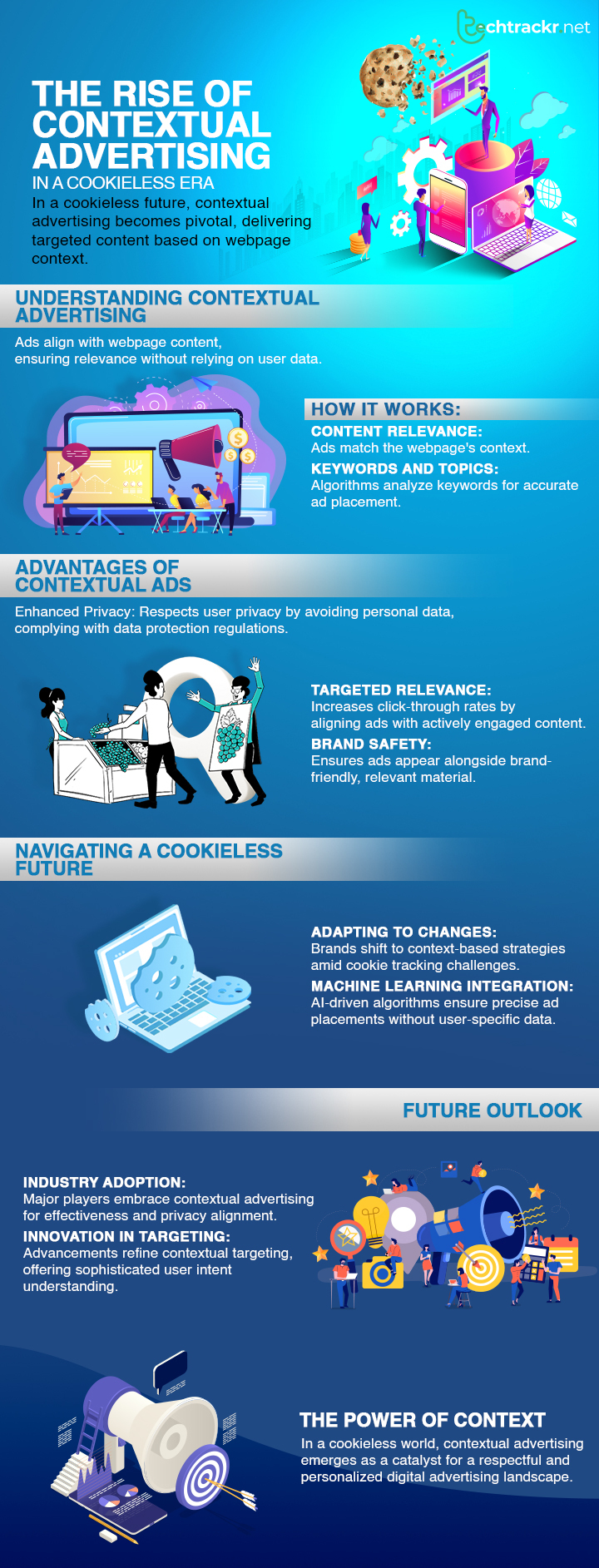
Contextual advertising becomes critical in a cookie-free future, offering personalized information based on webpage context.
How Contextual Advertising Works: Decoding the Mechanism
- Content Relevance: Ads seamlessly integrate with the context of the webpage.
- Keywords and Topics: Advanced algorithms analyze keywords for precise ad placements.
Advantages of Contextual Ads: Privacy-First Advertising
- Enhanced Privacy: Respects user privacy by avoiding reliance on personal data, ensuring compliance with data protection regulations.
- Targeted Relevance: Boosts click-through rates by aligning ads with actively engaged content.
- Brand Safety: Ensures ads appear alongside brand-friendly and relevant material.
As brands grapple with cookie tracking challenges, a shift towards context-based advertising strategies becomes imperative.
Embracing Technological Solutions: The Role of AI and Machine Learning
- Adapting to Changes: Brands pivot towards context-based strategies amid cookie tracking challenges.
- Machine Learning Integration: AI-driven algorithms ensure precise ad placements without relying on user-specific data.
Major industry players are embracing contextual advertising for its effectiveness and alignment with privacy concerns.
Innovation in Targeting: Charting the Future Course
- Industry Adoption: Contextual advertising gains widespread acceptance among major players.
- Refining Targeting: Continuous advancements refine contextual targeting, offering a sophisticated understanding of user intent.
The Power of Context: Paving the Way for a Personalized Digital Advertising Landscape
In a cookieless era, contextual advertising emerges as the cornerstone for fostering a respectful and personalized digital advertising landscape.
